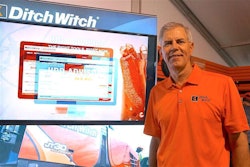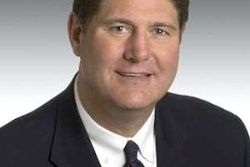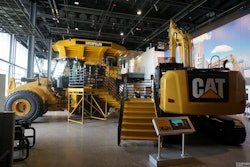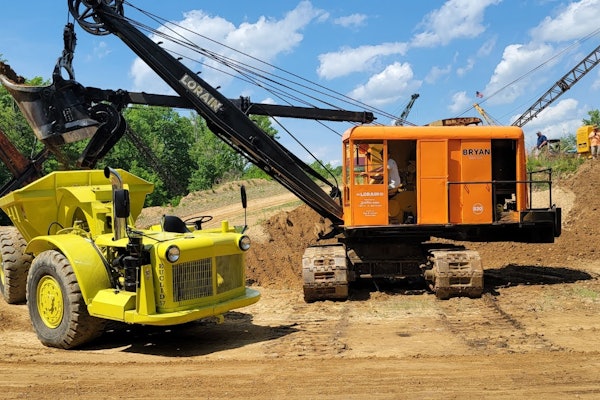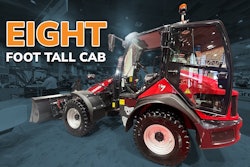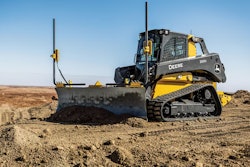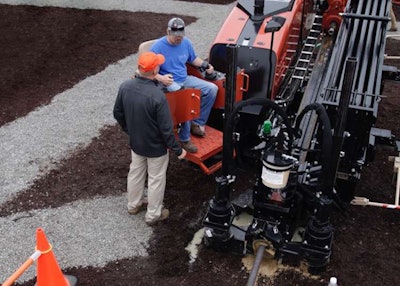 As part of the agreement with Ericsson, Ditch Witch and Vermeer will provide equipment, training expertise and dealer support.
As part of the agreement with Ericsson, Ditch Witch and Vermeer will provide equipment, training expertise and dealer support.In an effort to meet massive telecom fiber construction needs, telecom services provider Ericsson is joining with Ditch Witch and Vermeer to create a template to recruit, train and deploy multiple trenchless crews in major metropolitan areas across the United States.
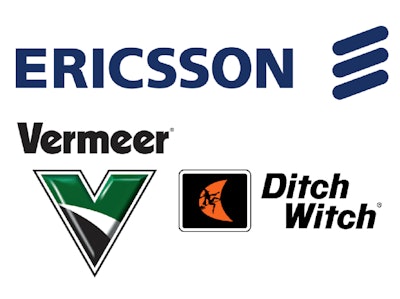
“Our ambition is to add a new supply of skilled trained crews to give us the ability to realize peak demand in large fiber builds,” says Ed Delong, Ericsson’s vice president, fiber and outside plant for North America.
Delong says Ericsson could take a traditional approach and simply steal skilled workers from contractors and others; instead the company wants to create a new workforce. “In essence, we’re creating a new construction company here,” Delong says.
This effort won’t shut out trenchless contractors, Delong says. Ericsson will contract out at least half of the available work and use the new workers for the rest in an effort to provide “unmatched scalability and startup times for its customer fiber projects.”
Initial efforts will concentrate on experimenting on ways to recruit and train the new Ericsson workers. At least at first, Ericsson will rely on its own field service organization to generate and nurture recruits. “We’ll also look to logical sources such as the military and technical institutes,” Delong says. “We’ll quickly understand where we are having the best results.” (Interested in becoming a member of these Ericsson crews? Contact Peter Kroshefskie, Ericsson senior recruiter, at [email protected].)
Once the recruiting/training template has been developed, Delong envisions a rolling four-week training boot camp of 15 to 25 people to put qualified workers in the field. The intention is to have the first crews laying fiber by early 2016. “While we want to accelerate this as much as possible, it’s critical to do it the right way,” Delong says. Beyond saying it will be a major metropolitan area, Delong did not disclose where Ericsson would start deploying these crews.
While figures on exactly how many construction jobs this initiative could create were not given, Delong said that some projects in certain metro areas could take up to 50 construction crews, and possibly have up to a three-year build out. Since Ericsson will be responsible for maintaining the installed fiber network, certain jobs could last beyond those three years.
One primary driver to all this fiber construction: consumer demand for high-speed broadband connectivity to operate multiple devices and download streaming video. Ericsson’s own Mobility Report estimates the average number of connected devices per U.S. household is 5.2.
Ericsson will rely on Ditch Witch and Vermeer to provide equipment, training and field support. “We also feel that we can add value with our dealer organization, which knows local soil conditions and can guide equipment selection,” says Shan Kirtley, Ditch Witch vice president of sales and marketing. “It’s encouraging to see a company of Ericsson’s scale do this,” says Steve Heap, Vermeer vice president, corporate accounts and business development. “This will result in growth for the trenchless market.”
Local soil conditions will determine the size of drills Ditch Witch and Vermeer supply Ericsson. Both Kirtley and Heap said they didn’t anticipate any challenges meeting the Ericsson demands above those of their normal customer base, and declined to talk about the number of drills the agreement involves.
“I would like to think the entire industry would look at this as good news,” Delong says. “It hopefully relieves some contractor’s concerns on how they could grow at a level to meet these demands.” Delong says Ericsson will share the best practices it develops training its new workforce. “By leveraging the tools and technologies of three companies, we can bring a white collar approach to a blue collar industry.”





